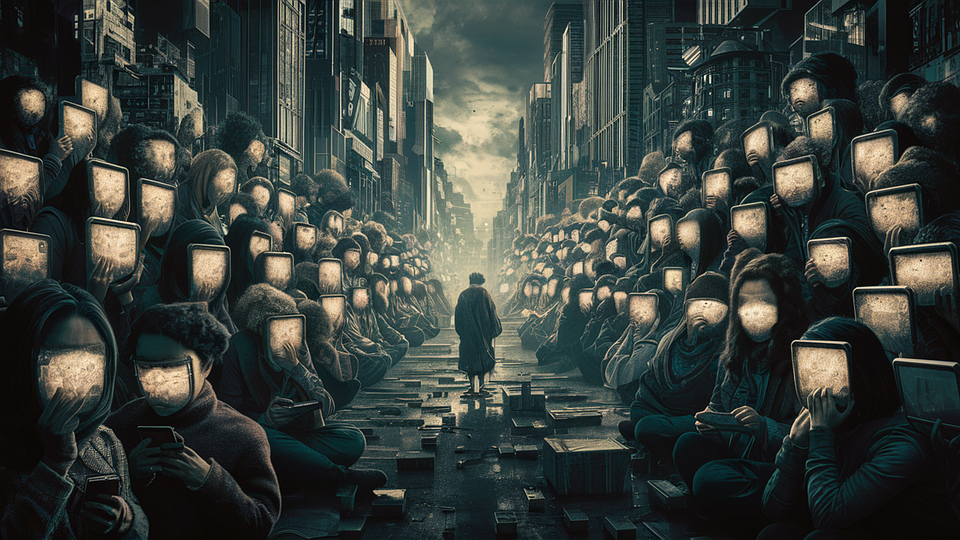On Nazis, AI, and the Delusion of a ‘Post-Truth’ World

🌈 Abstract
The article discusses the concept of "truth" and the delusion of a "post-truth" world, as well as the existential threat posed by AI and technology. It examines the ideas of philosopher Martin Heidegger, who warned about the dangers of technology and its tendency to view the world and humans as mere "standing reserve" to be consumed.
🙋 Q&A
[01] On Delusion of a Post-Truth World
1. What is the author's view on the concept of "truth"?
- The author argues that the notion of "absolute universal truth" is a delusion, as truth is simply the correlation of experiences among multiple people, not an external, perfect ideal.
- The author suggests that we have always been "making shit up" to suit our personal desires and goals, and that the current "post-truth" world is not a new phenomenon, but rather a continuation of this human tendency.
2. How does the author characterize the development of the idea of "truth" in the Western cultural tradition?
- The author traces the origins of the concept of "truth" to Plato's idea of Platonic dualism, which posited that knowledge comes from a perfect, ideal "Truth" accessible through reason.
- This idea was later adapted into Christianity, with "God" as the source of absolute truth and knowledge, accessible only to the well-to-do educated males.
- The author argues that this notion of "truth" is fundamentally flawed, as it fails to account for the obvious truth that we cannot definitively say what is absolute or universal.
3. What is the author's view on the current state of "truth" and the "post-truth" world?
- The author contends that the belief in a "post-truth" world is itself a delusion, as we have never lived in a "truth world" in the sense of the Western cultural tradition.
- The author suggests that the current state of affairs, where the world and humans are being turned into a "giant database to be crawled by machines," is a continuation of the human tendency to "make shit up" to suit our desires and goals, rather than a new phenomenon.
[02] On AI
1. How does the author characterize the threat of AI?
- The author views AI as an "existential threat" being "foisted upon human societies by fanatics" under the guise of "technological progress is good for humanity."
- The author argues that the idea of AI being akin to a "baby" that cannot be turned off is an "absurdity" and a "nonsensical idea" driven by the human desire to "not be wrong, to be right, to be the owner and guardian of 'truth.'"
2. What is the author's perspective on the debate around the ethics and control of AI?
- The author suggests that the debate around the ethics and control of AI is rooted in the same human tendency to "not be wrong" and to be the "owner and guardian of 'truth.'"
- The author argues that the idea of AI being a "tool" that can be controlled is a delusion, and that the nature of technology is to "enframe" the world and change our relationship to it.
[03] On Nazis and Prophetic Insight
1. How does the author view the philosophical insights of Martin Heidegger, despite his political affiliations?
- The author acknowledges that Heidegger was a member of the Nazi Party, but argues that his political views can be separated from his metaphysical insights on the nature of technology and its dangers.
- The author finds Heidegger's insights on the "extreme dangers of technology" to be "astonishingly prophetic" and relevant to the current existential threats posed by technology and AI.
2. What were the key ideas in Heidegger's philosophy that the author finds relevant?
- Heidegger's rejection of the Platonic idea of "truth" as an absolute, perfect ideal, and his view that all we can know is from the perspective of "embodied worldly beings enmeshed with each other in the world."
- Heidegger's warning that the "nature of technology" is not just a "means-to-an-end" tool, but a way of "enframing" the world that can lead to viewing it and humans as mere "standing reserve" to be consumed.
[04] On Being Philosophical
1. What is the author's perspective on the importance of being "philosophical" in the face of technological threats?
- The author suggests that the solution to the existential threats posed by technology and AI lies in being "philosophical" and questioning our existence, rather than trying to "be right" or define absolute "truth."
- The author argues that by being "philosophical" and understanding our interconnectedness with the world, we may find the "saving power" that Heidegger believed resides in the same place as the danger.
2. How does the author view the role of art and philosophy in addressing these challenges?
- The author suggests that, for Heidegger, the path to the "saving power" lies in art and philosophy as a way of questioning what it means to be the kind of beings we are in the world.
- The author argues that by being more "philosophical" and less focused on "being right," we may be able to move away from the "world + human = consumable resource" paradigm and towards a more sustainable and caring relationship with the world and each other.